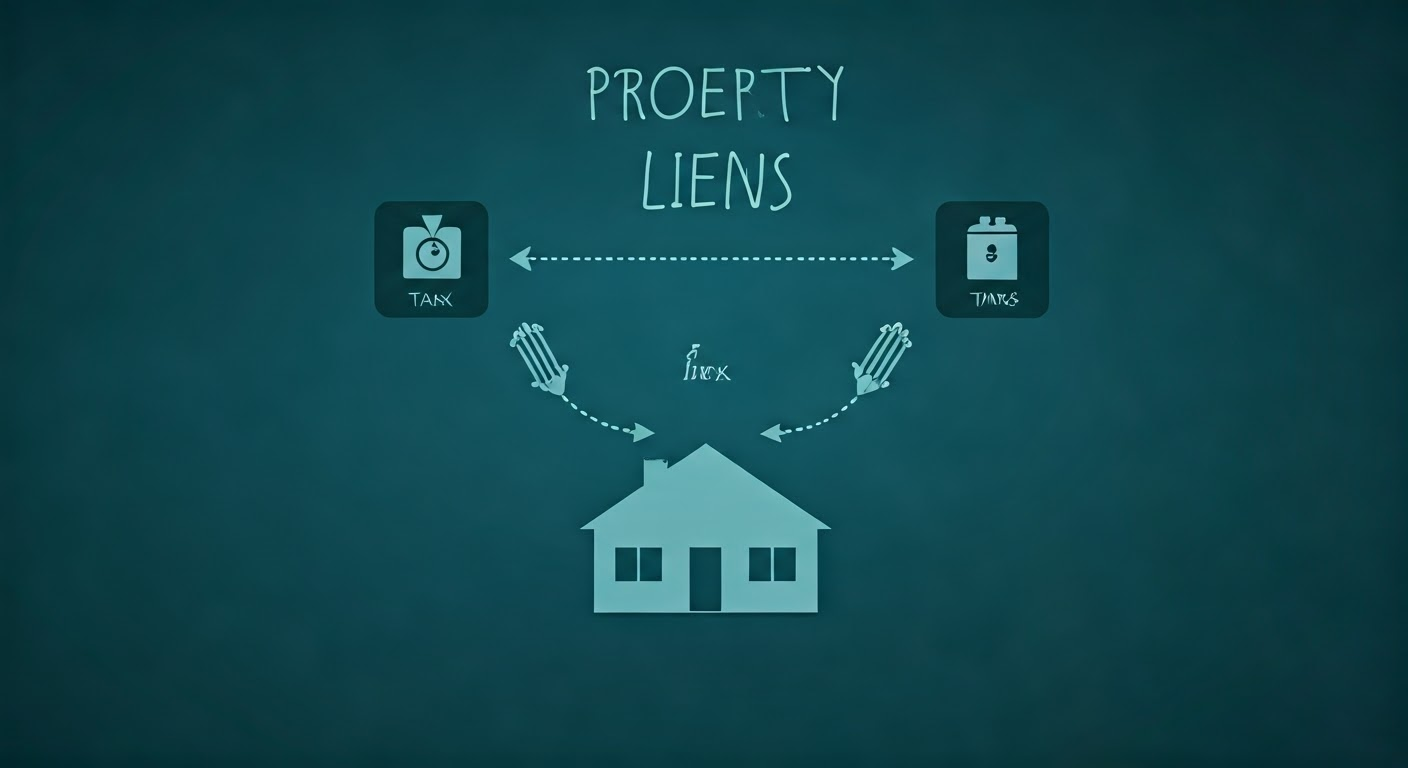Can You Sell a House With a Lien on It?

In the world of real estate, selling a house involves navigating various legal and financial aspects. One such aspect that can complicate the sales process is a lien. A lien acts as a legal claim against a property, typically arising from unpaid debts, and it can significantly impact a property owner’s ability to sell.
This comprehensive guide will explore the intricacies of selling a house with a lien, examining the types of liens, their impact, and strategies for a successful sale.
Key Highlights
- Yes, you can sell a house with a lien, but it requires careful planning and execution.
- A lien is a legal claim against a property, often for unpaid debts.
- Common types of liens include mortgage, tax, judgment, and mechanic’s liens.
- Before selling, identify all liens and explore options like paying off, negotiating, or transferring them.
- Working with an experienced real estate agent and real estate attorney is crucial for a smooth transaction.
Understanding Liens on Property in the United States

Imagine a legal claim attached to a property, restricting its sale until the underlying debt is cleared – that’s essentially what a lien represents. These legal claims are tools used by creditors to secure their financial interests in case of a borrower’s default. Recorded in public records, liens provide notice to potential buyers and lenders, impacting the property’s marketability.
Whether it’s securing a loan, collecting unpaid dues, or ensuring payment for services, liens serve as safeguards within the real estate sector. Understanding their implications is crucial for both property owners and prospective buyers.
Defining a Property Lien
A property lien is a legal claim on a property, serving as security for a debt or obligation owed by the property owner. This claim grants the lien holder, typically a creditor, certain rights to the property until the debt is satisfied. Liens can be voluntary or involuntary, depending on how they are established.
A common example of a voluntary lien is a mortgage lien, where a homeowner willingly grants the lender a claim on their property as collateral for the loan.
On the other hand, involuntary liens, also known as legal claims, are placed on a property without the owner’s consent, usually as a result of unpaid debts or obligations.
For instance, if a contractor performs work on a property and is not paid, they may file a mechanic’s lien to secure their payment. Understanding the distinction between voluntary and involuntary liens is essential when navigating property transactions.
Common Types of Liens Found on Properties
A judgment lien arises from a court judgment against a property owner for unpaid debts. If a homeowner loses a lawsuit and fails to pay the awarded damages, the creditor can file a judgment lien.
Mortgage liens, the most prevalent type, are voluntary liens placed on a property when a mortgage loan is taken out. This lien gives the mortgage lender the right to seize and sell the property if the borrower defaults on mortgage payments.
Tax liens, as the name suggests, are filed by government entities for unpaid property taxes. These liens take priority over other liens, highlighting the importance of timely tax payments. Additionally, federal tax liens are imposed by the IRS for unpaid income taxes, showcasing the government’s authority in recouping owed funds.
The Impact of Liens on Selling Your House
Liens, those legal shadows cast upon a property’s title, can significantly hinder a home sale by creating complications and deterring potential buyers. The presence of liens can lead to delays in the closing process, as clearing them becomes a prerequisite for a smooth transaction.
Moreover, navigating the complexities of liens often involves legal expenses and negotiations, adding an extra layer of financial burden for the seller. Understanding these impacts is paramount for homeowners seeking a successful and timely sale.
How Liens Affect Property Value and Saleability
Liens can cast a shadow on a property, impacting its value and marketability in several ways. For one, liens create a cloud on the title, making it less attractive to potential buyers who seek a clear and unencumbered ownership transfer. This perception of risk can lead to lower offers from buyers or even deter them altogether.
Furthermore, the presence of liens can hinder the seller’s ability to access financing. Lenders view properties with liens as higher risk, potentially limiting the seller’s options for refinancing or securing a new mortgage. This restricted access to capital can further diminish the property’s overall marketability.
In essence, liens create a financial hurdle that affects both the seller’s flexibility and the buyer’s confidence, ultimately impacting the property’s perceived worth.
Legal Implications of Selling a House with a Lien
It is paramount to engage a real estate attorney to navigate the legalities of selling a property encumbered by a lien. Experienced real estate attorneys play a crucial role in ensuring compliance with legal requirements and protecting the seller’s best interests. They guide sellers through the intricacies of lien releases, ensuring that all parties adhere to the proper procedures.
Selling a property with a lien involves satisfying the lienholder’s claim, often through the sale proceeds. The real estate attorney plays a pivotal role in drafting and reviewing closing documents, guaranteeing that the lien is properly addressed and the buyer receives a clear title. Failing to comply with legal requirements can lead to future legal disputes and financial liabilities, making professional legal counsel essential throughout the process.
Preparing to Sell a House with a Lien
Embarking on the journey of selling a house with a lien requires meticulous preparation and a clear understanding of the steps involved. Thorough research and strategic planning are key to ensuring a smooth and successful transaction.
Working alongside legal and real estate professionals is crucial for guidance and support throughout the process. By understanding the necessary steps and seeking expert advice, homeowners can navigate the sale of a property with a lien effectively.
Identifying All Existing Liens on Your Property
Before embarking on the sale of your property, conducting a comprehensive title search is crucial to uncover any existing liens. A title search involves examining public records to identify any legal claims against the property. You can either contact a title company to perform a title search or visit the county clerk’s office for assistance.
Once you have a clear picture of the existing liens, you can determine the best course of action for addressing them and proceeding with the sale. Consulting with a real estate lawyer can provide valuable insights and guidance during this process.
Evaluating Your Options for Dealing with Liens
When faced with selling a property burdened by liens, it’s essential to explore the available options for resolution. Consulting with a real estate lawyer is highly recommended to determine the most suitable approach. One option is to obtain a lien release by paying off the debt in full, which effectively removes the lien from the property’s title.
If paying off the lien outright isn’t feasible, negotiating a payment plan with the lien holder is another alternative. This approach allows for a structured repayment schedule, potentially making the property more attractive to buyers. In some cases, it might be possible to sell the property with the existing lien and use the sale proceeds to satisfy the debt.
Remember, each situation is unique, and seeking professional legal advice is paramount for making informed decisions.
Strategies for Selling Your House with a Lien
Selling a property with a lien requires strategic planning and effective communication with potential buyers. While finding a buyer may seem daunting, there are various strategies to navigate this situation successfully.
Effective communication and a proactive approach can pave the way for a smooth transaction, even with the presence of a lien. Remember, transparency and a focus on solutions can make all the difference in securing a buyer and closing the deal.
Negotiating with Lienholders for Lien Release
Negotiation with lienholders can be a strategic approach to secure a lien release and facilitate the sale of your house. In certain situations, lienholders may be open to negotiating a reduced payoff amount, especially if it means avoiding a protracted legal process. It’s crucial to approach these negotiations with a clear understanding of your financial situation and a willingness to find mutually agreeable terms.
Engaging the expertise of a real estate attorney can be invaluable during this process. These legal professionals can communicate effectively with lienholders on your behalf, advocate for your best interests, and ensure that any agreements reached are legally sound. Successful negotiation can not only expedite the sale of your house but also potentially reduce the financial burden associated with the lien.
Using Proceeds from the Sale to Clear the Lien
In many real estate transactions involving properties with liens, using the sale proceeds to clear the debt is a common strategy. Essentially, the lien is paid off at the closing table, utilizing the funds generated from the sale itself. This approach offers a practical solution, as it eliminates the need for the seller to settle the debt upfront or seek additional financing.
During the closing process, a portion of the sale proceeds is allocated to satisfy the lien in full. The remaining funds are then disbursed to the seller. This streamlined approach ensures a clear title for the buyer and relieves the seller’s financial burden associated with the lien. It’s important to note that utilizing this strategy often requires agreement from the buyer, lender, and lien holder.
Conclusion
Selling a house with a lien can be complex, but with the right knowledge and strategies, it is possible. Understanding the impact of liens on property value and saleability is crucial. Identifying and dealing with existing liens before selling is essential to a smooth transaction.
Whether negotiating with lienholders for release or using sale proceeds to clear the lien, careful planning is key. By following legal procedures and evaluating all options, you can navigate selling a house with a lien successfully. For more detailed guidance on this process, consult our experts today.
Ready to work with Tulsa Home Buyers?
Let's connect! We’re here to help.
Send us a message and we’ll be in touch.
Or give us a call today at (918) 516-8951


